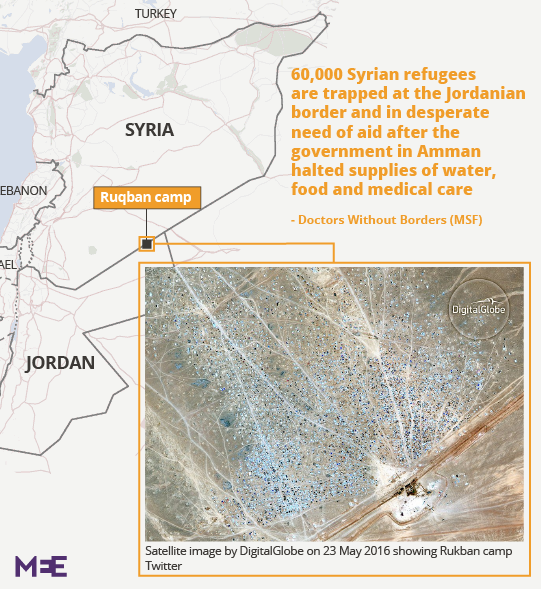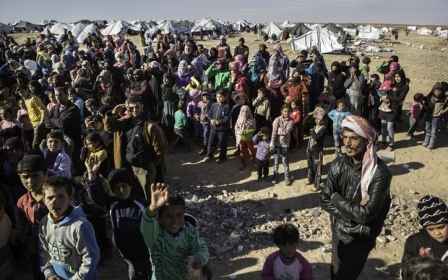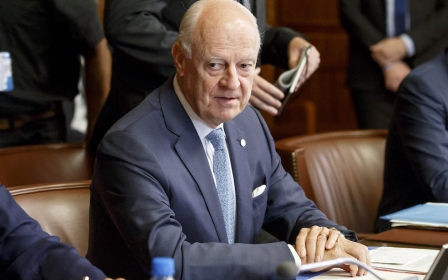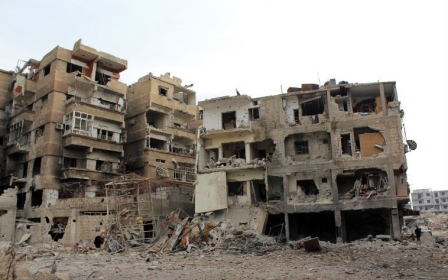UN to send aid convoy to Rukban refugee camp in Syria
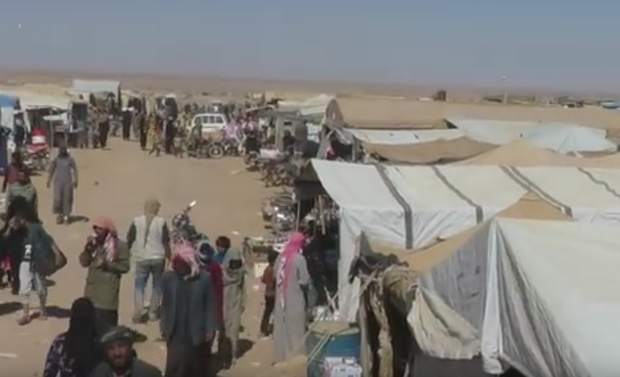
An aid convoy is expected to enter the Rukban refugee camp in southern Syrian next week to provide critical humanitarian assistance to tens of thousands of Syrians trapped there as winter nears, the United Nations said.
The last time an aid convoy reached Rukban, which sits near Syria's borders with Jordan and Iraq, was in January.
“The overall humanitarian situation inside the Rukban camp is at a critical stage. The UN in Syria, together with [the Syrian Arab Red Crescent], will reach the camp to provide life-saving humanitarian assistance in the coming few days,” Ali Al-Za’tari, the UN humanitarian coordinator for Syria, said in a statement on Wednesday.
The UN last year said about 45,000 people, mostly women and children, were trapped in Rukban. Organisations including Doctors Without Borders have said the number of refugees living there is closer to 60,000.
Last week, the UN urged warring parties in Syria to allow basic health service deliveries to the Syrians in the camp.
The global body's fund for children, UNICEF, said two babies - a five-day-old boy and a four-month-old girl - without access to hospitals had died in a 48-hour period near the Rukban border crossing.
"Once again, UNICEF appeals to all parties to the conflict in Syria and those who have influence over them, to allow and facilitate access to basic services including health for children and families," Geert Cappelaere, the agency's Middle East and North Africa director, said in a statement at the time.
"This is the very minimum for human dignity."
Rights groups including Human Rights Watch and Amnesty International have called on Amman to allow the trapped Syrians entry into Jordan for years.
"The situation for the estimated 45,000 people - among them many children - will further worsen with the cold winter months fast approaching, especially when temperatures dip below freezing point in the harsh desert conditions," Cappelaere added.
More than 360,000 people have died in the war in Syria, which began in March 2011 as an uprising against President Bashar al-Assad, but has since morphed into a complex war with myriad armed groups, some of which have foreign backing.
Middle East Eye propose une couverture et une analyse indépendantes et incomparables du Moyen-Orient, de l’Afrique du Nord et d’autres régions du monde. Pour en savoir plus sur la reprise de ce contenu et les frais qui s’appliquent, veuillez remplir ce formulaire [en anglais]. Pour en savoir plus sur MEE, cliquez ici [en anglais].


